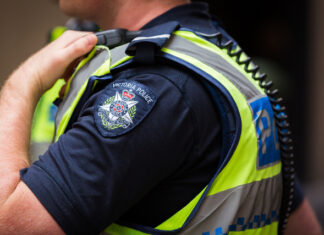Andrew Mathieson
KAREN Knuckey is closer to her family than most despite the thousands of kilometres that separate some of the clans.
The liver that filters fluids inside the body of one of Transplant Australia’s leading office-bearers had belonged to a generous auntie who lives in Queensland.
The donation six and a half years ago saved the Newtown woman from deteriorating health.
Doctors insisted it was time for a new kidney when Karen’s struggle on dialysis for 11 months made even hanging out washing an ordeal.
“It’s very humbling to think someone is prepared to give you part of their body,” Karen acknowledges.
“It’s not like handing over their old TV.”
Karen’s debilitating kidney condition arose from alport syndrome, a genetic disorder that also leads to bouts of deafness and which can affect vision.
Despite returning to a fit bill of health, the 34-year-old still struggles to hear every word of conversations.
Another symptom is constant tiredness, Karen points out.
“It is not like having too many beers or not enough sleep,” she grins, “but having to psyche yourself up to going up the stairs because you know it’s going to be hard.”
For the family, worst was when Karen and kid brother Bruce were diagnosed a year or so apart.
He was 11 years old and Karen was just nine.
“Mum was devastated,” Karen remembers.
“I guess at nine you really don’t understand it all.
“You had a kidney disease but basically were told you’d be fine.”
The disease was supposed to affect sufferers in their 60s but its symptoms hit Karen soon after her 21st birthday.
Bruce now lives on the other side of the world in the UK.
Fortunately, he has not needed a transplant.
But Karen’s new liver finally allowed her to fly over to visit her reclusive sibling.
“We have been told it’s heredity but we’re the first ones in the family with it,” Karen says.
“I guess it brought us closer.”
One of the toughest decisions forced on Karen by her illness was deciding at 16 against bringing a baby into the world.
“For me, a pregnancy would shorten the life of my transplant,” she admits.
“I don’t want my child to have a sick mother.
“If you can’t look after yourself, how can you look after a child?”
Karen has now dedicated a large chunk of her life to Transplant Australia as branch president for Victoria and Tasmania.
Her role with the organisation began with an innocent request to attend a 2004 Australian Transplant Games in Adelaide.
“I’d never even heard of the games,” she concedes.
After enjoying 10-pin bowling and eight-ball billiards in Adelaide, Karen was thrust onto the organising committee when Geelong won the bid for the 2006 games.
The branch presidency job requires about 30 hours of work a week to organise functions, including a recent national organ donor week, as well as liasing with transplant organisations and raising funds to attend a World Transplant Games in August.
“Sometimes I have to say ‘I’m not checking my emails today’,” Karen laughs as she looks back at her busy schedule.
Get the latest news to your email inbox FREE!
REGISTER





